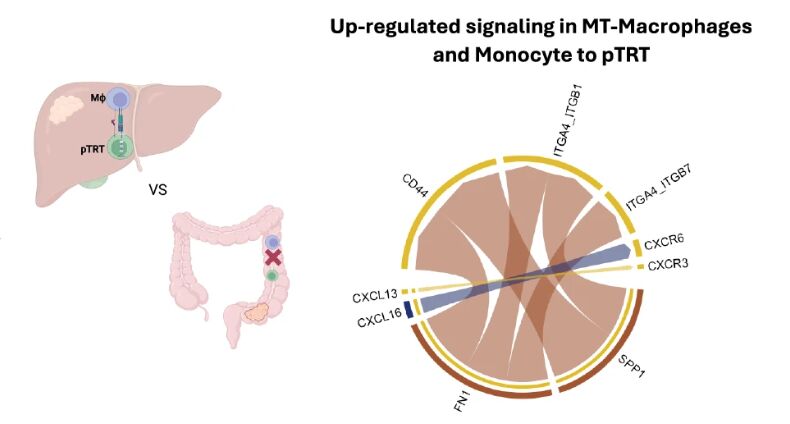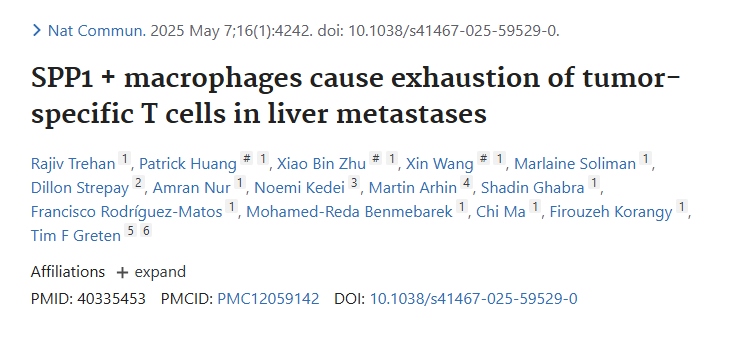
NCI Center for Cancer Research Reveals Mechanism of T Cell Exhaustion in Liver Metastases
NCI Center for Cancer Research shared a post on LinkedIn:
“To fight cancer effectively, the immune system needs functional CD8+ T cells, a type of immune cell that can specifically target and kill tumor cells. These cells are also crucial for therapies involving immune checkpoint inhibitors.
NIH researchers at the Center for Cancer Research showed that primary and metastatic liver tumors have a high amount of dysfunctional CD8+ T cells compared to tumors in other organs. Their findings suggest that signals from tumors outside the liver can create an intermediate cell population in the liver that makes the T cells less effective.”

Title: SPP1 + macrophages cause exhaustion of tumor-specific T cells in liver metastases
Journal: Nature Communications
Authors: Rajiv Trehan, Patrick Huang, Xiao Bin Zhu, Xin Wang, Marlaine Soliman, Dillon Strepay, Amran Nur, Noemi Kedei, Martin Arhin, Shadin Ghabra, Francisco Rodríguez-Matos, Mohamed-Reda Benmebarek, Chi Ma, Firouzeh Korangy, Tim F. Greten

More posts featuring NCI Center for Cancer Research on OncoDaily.
-
Challenging the Status Quo in Colorectal Cancer 2024
December 6-8, 2024
-
ESMO 2024 Congress
September 13-17, 2024
-
ASCO Annual Meeting
May 30 - June 4, 2024
-
Yvonne Award 2024
May 31, 2024
-
OncoThon 2024, Online
Feb. 15, 2024
-
Global Summit on War & Cancer 2023, Online
Dec. 14-16, 2023
